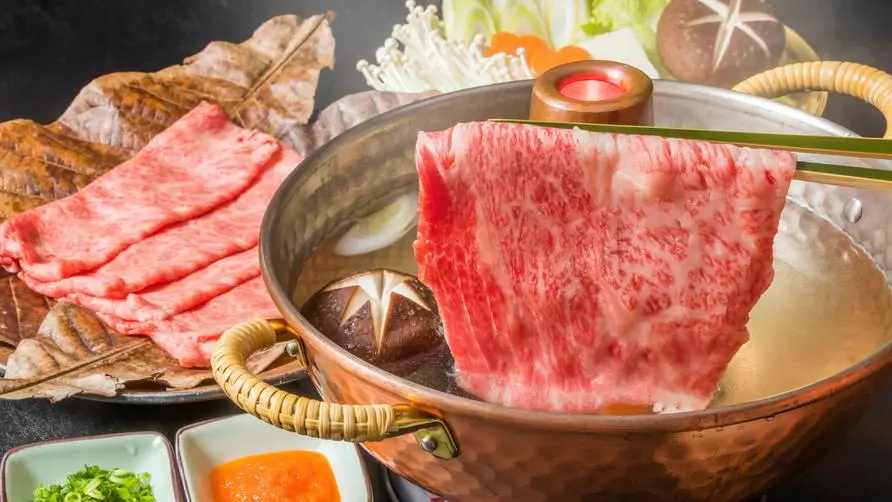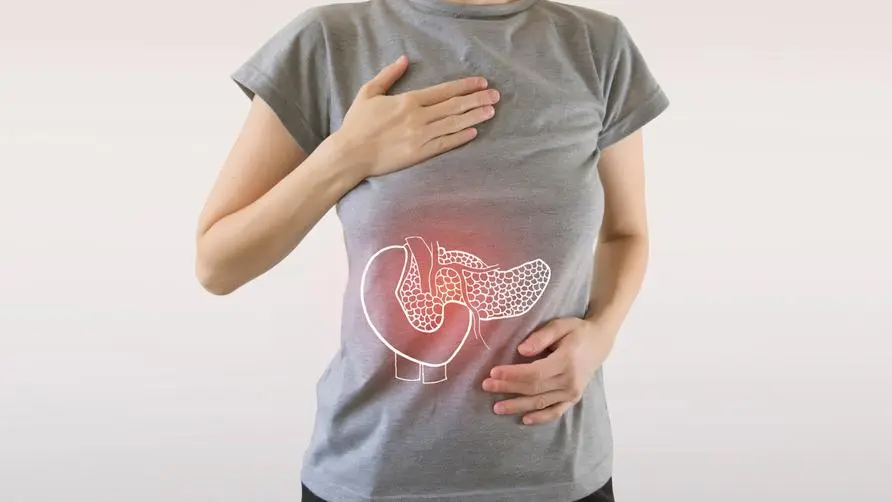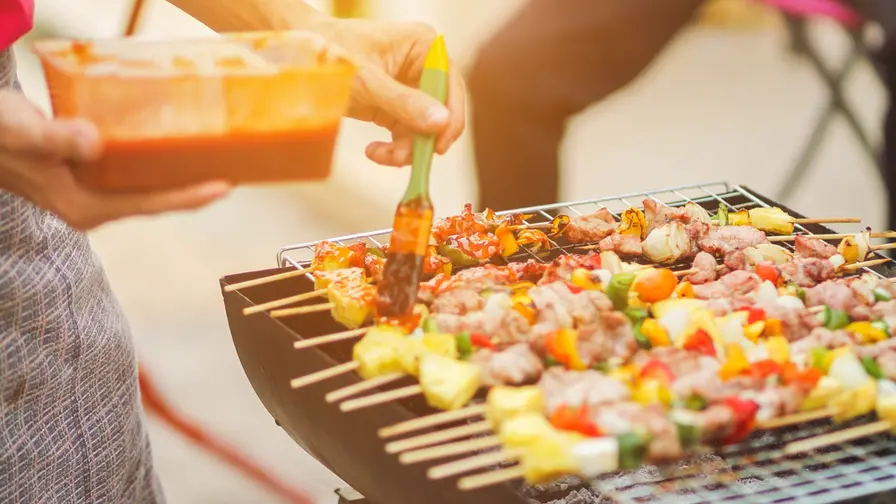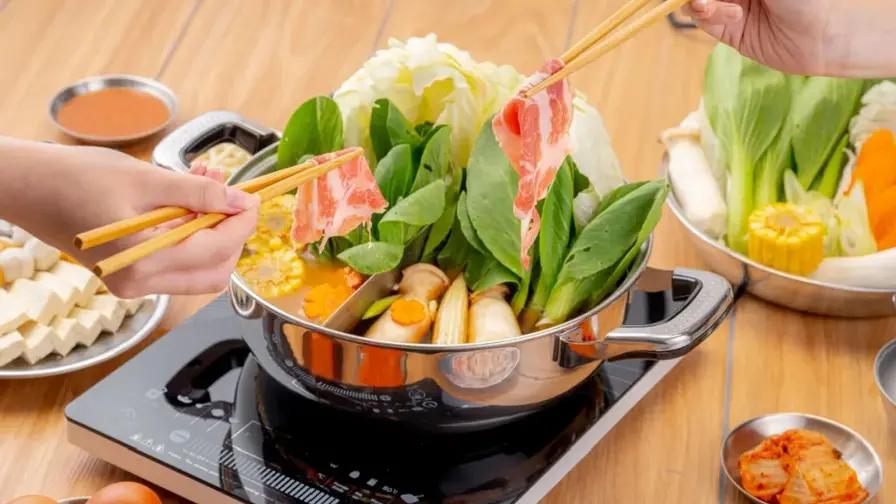Can I drink the hot pot soup base? Which hot pot ingredients are "most likely to make you fat"? Nutritionist teaches the correct way to eat

Can I drink soup when eating hot pot? Nutritionists recommend not cooking it for more than half an hour.
Taiwanese people love to eat hot pot, and winter is a popular season for eating hot pot around the fire. Manman nutritionists remind you to pay attention to calories and additives when choosing soup base. Taking commercially available hot pot soup base as an example, a 220-gram serving of spicy hot pot soup base may contain as many as 1,400 calories. In addition, cheese and cream will be added to the milk pot; cornstarch and potato starch will be added to the pumpkin pot, both of which are hot pot soup bases with relatively high calories.
Manman nutritionist reminds that sukiyaki pot is both salty and sweet, with high calorie and sodium content. Smelly pot contains bean paste and sand tea sauce, which is not only high in fat but also contains a lot of sodium. Although the sauerkraut white meat pot that many people like has low calories, it is made with sauerkraut and the soup base is highly salty. Be careful that drinking too much may cause edema.
Manman nutritionists suggest that kelp pot, tomato pot, and vegetable soup are healthier choices for hot pot soup base. However, the sodium in the soup base will become concentrated over time. It is not recommended to drink hot pot soup after cooking it for more than half an hour. In addition, people with high blood pressure should not drink more than 2 bowls of hot pot soup per meal. People with gout are not recommended to drink hot pot soup, especially seafood pot with a higher purine content, to avoid causing gout attacks.
Can you drink soup when eating hot pot? Manman nutritionist said that if it is a soup base with high sodium content, it is recommended to drink 300CC of water before eating hot pot. Vegetable hotpot, kombu hotpot, etc. can be drunk at the beginning, but it is best to avoid cooking them for more than half an hour, so as not to consume excessive sodium and increase the burden on the body.
Gain weight after eating too much hot pot ingredients? Which ingredients are most likely to absorb oil and sodium?
There are a dazzling array of hot pot ingredients. Which ones are most likely to make you fat if you eat too much? Manman nutritionists pointed out that processed hot pot ingredients such as tribute balls, swallow dumplings, shrimp dumplings, etc. have too much fat and seasonings in the fillings. Mochi-yaki and fried taro have a high fat content, and eating too much can make you gain weight. For soy products, avoid deep-fried fried bean skins and fried tofu, which not only contain high fat content but also absorb sodium in the soup. It is not recommended to cook Baiye tofu and frozen tofu for too long to avoid absorbing oil and sodium.
Manman Nutrition said that hot pot meat slices such as Shuangjiang beef and pork belly are high in fat. When eating offal, fish eggs, and crab roe, beware of high cholesterol. Starchy fried dough sticks, prince noodles, and instant noodles will absorb oil, and they may absorb too much heat if cooked in a hot pot for too long. Noodles, which are often eaten with ginger duck, also have a high sodium content. Eating too much can easily lead to edema and weight gain.
In addition, Manman nutritionists remind that “blood” foods such as rice blood, pig blood, and duck blood contain a lot of iron and have strong oxidizing properties. Although women can supplement iron by taking it in moderation, men who take too much can easily lose it in the body. Oxidation is like making iron “rust” in the body, causing an increase in free radicals, which may damage blood vessel health and increase the risk of cancer.
How to eat hot pot healthily? Pay attention to the selection of ingredients and the order of eating
Manman nutritionists suggest that in the selection of food ingredients, corn, taro, pumpkin, and water chestnuts can be selected as whole grains. For rice, brown rice, purple rice, and five-grain rice are recommended; for noodles, you can choose buckwheat noodles, quinoa noodles, sugar-reduced noodles, tofu noodles, and konjac noodles.
For beans, fish, eggs and meat, it is recommended to choose traditional tofu and non-fried tofu skin. Fish and seafood are lower in fat than red meat, so you can give them priority. Chicken or skinless chicken legs, the meat slices are mainly of less oily types.
You should also pay attention to the order and method of eating hot pot. Nutritionists from Manman pointed out that when eating hot pot, you can follow the healthy weight loss eating order, eating vegetables first, then seafood and beans, and then eating starch and other meats. Remember to remove the hot pot after the vegetables are cooked to avoid absorbing too much fat and sodium. It is also recommended to cook starches and winter noodles first and then remove them. Do not soak them in the hot pot for too long. When eating seafood, it is not recommended to smoke shrimp heads as the cholesterol content is too high.
Manman nutritionists remind that excessive sodium intake is the most important issue for Taiwanese people to pay attention to in their diet, especially sauces such as XO sauce, chili sauce, and bean paste, all of which have high sodium content. It is recommended to use a little soy sauce or dilute it with water, and mix it with lemon juice, onion, ginger, garlic, chili, and white radish puree to enjoy the delicious hot pot. When dipping in vinegar, it is recommended to use white vinegar as it contains less sodium than black vinegar. To avoid causing gastroenteritis and food safety issues, try not to use raw eggs with sauces.
Further reading:





